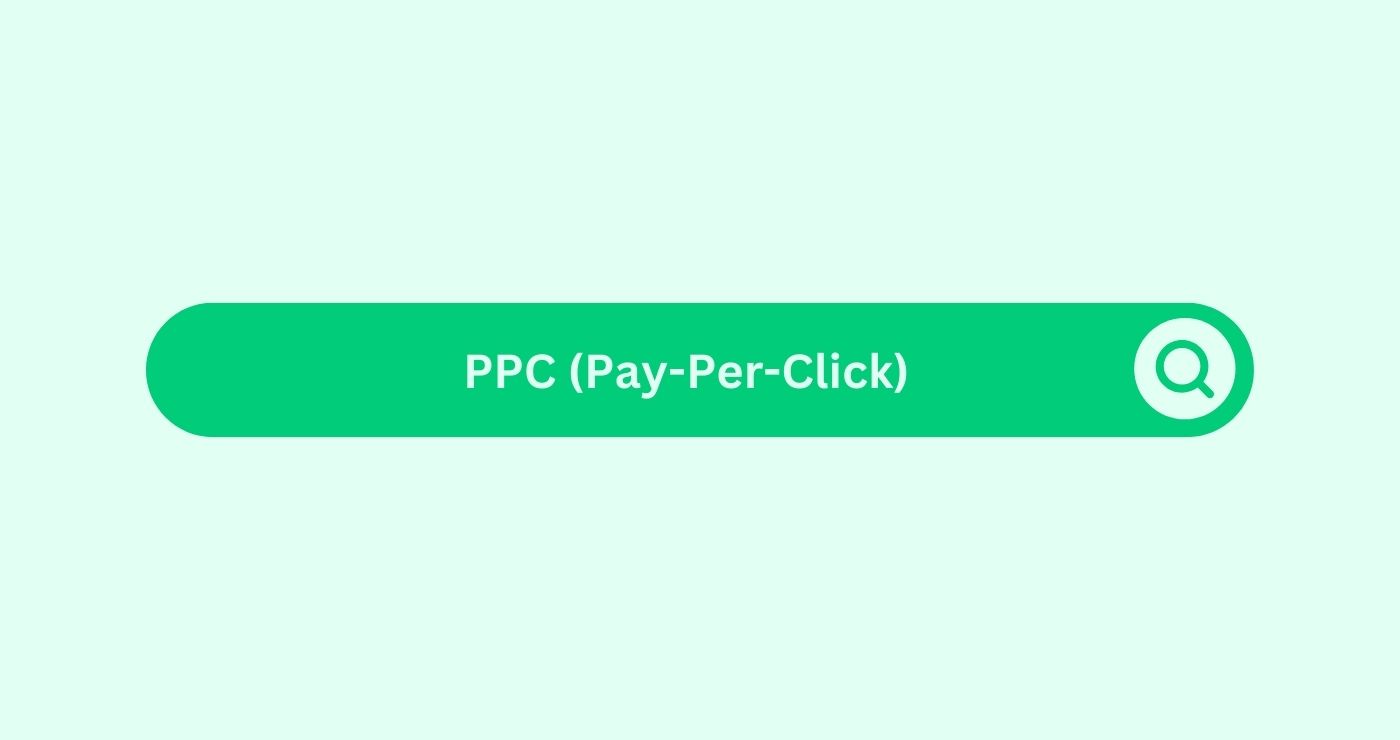Definition
PPC (Pay-Per-Click) is a digital advertising model where advertisers pay a fee each time their ad is clicked. It’s a way of buying visits to your site rather than earning them organically through SEO. PPC ads appear on search engine results pages (SERPs) and other digital platforms, and advertisers bid on keywordsWhat is the keyword in the context of content marketing? Key... More relevant to their target audienceDefinition The term "Audience" refers to the group of indivi... More.
Example of how you can use PPC (Pay-Per-Click)
Suppose you own a local bakery and want to increase online orders. You can create PPC ads targeting keywordsWhat is the keyword in the context of content marketing? Key... More like “fresh pastries delivery” or “local bakery near me.” When users search for these terms, your ads will appear at the top of the search results, driving targeted trafficDefinition In the context of SEO (Search Engine Optimisation... More to your website and potentially increasing sales.
Key Takeaways
- Immediate Results: PPC campaigns can generate immediate trafficDefinition In the context of SEO (Search Engine Optimisation... More and results, making them ideal for short-term promotions or product launches.
- Targeted Advertising: Advertisers can target specific keywordsWhat is the keyword in the context of content marketing? Key... More, demographicsDefinition E mail demographics refers to the statistical dat... More, locations, and devices, ensuring ads reach relevant audiences.
- Cost Control: Advertisers have full control over their budgetDefinition Budget in the SEO space refers to the allocated a... More, bids, and ad spend, allowing them to set daily or campaignDefinition A Campaign in the SEO space refers to a focused a... More budgets and adjust bids based on performance.
- Measurable ROI: PPC platforms provide detailed analyticsDefinition Analytics in the SEO context refers to the proces... More and reporting tools to track ad performance, clicks, conversions, and ROI, enabling advertisers to measure the effectiveness of their campaigns.
- Adaptability: PPC campaigns can be easily adjusted, optimised, and scaled based on real-time performance data, allowing advertisers to continuously improve campaignDefinition A Campaign in the SEO space refers to a focused a... More performance and maximise ROI.
FAQs
How does PPC bidding work?
In PPC advertising, advertisers bid on keywordsWhat is the keyword in the context of content marketing? Key... More, and the highest bidder gets the top ad placement. However, ad positionDefinition Ad Position in the SEO space refers to the placem... More is also determined by ad relevanceDefinition In SEO, relevance refers to the degree to which a... More, quality scoreDefinition Quality Score is a metric used in SEO to evaluate... More, and other factors.
What is Quality Score in PPC?
Quality ScoreDefinition Quality Score is a metric used in SEO to evaluate... More is a metric used by PPC platforms like Google Ads to measure the relevanceDefinition In SEO, relevance refers to the degree to which a... More and quality of your ads, keywordsWhat is the keyword in the context of content marketing? Key... More, and landing pagesDefinition Landing pages are standalone web pages specifical... More. Higher Quality Scores can leadWhat is Lead? Definition A Lead in the context of SEO refers... More to lower costs and better ad positions.
What is Ad Rank in PPC?
Ad RankDefinition Ad Rank is a metric used in search engine adverti... More determines the position of your ad on the search results page. It's calculated based on your bid, Quality ScoreDefinition Quality Score is a metric used in SEO to evaluate... More, and ad extensions' impact.
How can I improve my PPC campaign's Quality Score?
To improve Quality ScoreDefinition Quality Score is a metric used in SEO to evaluate... More, focus on creating relevant ad copy, using targeted keywordsWhat is the keyword in the context of content marketing? Key... More, optimizing landing pagesDefinition Landing pages are standalone web pages specifical... More, and providing a positive user experience.
What are some common PPC advertising platforms?
Common PPC advertising platforms include Google Ads (formerly Google AdWordsDefinition AdWords, now known as Google Ads, is an online ad... More), Bing Ads, Facebook Ads, Twitter Ads, LinkedIn Ads, and Amazon Advertising.
How do I track conversions in PPC campaigns?
Conversion trackingDefinition Conversion Tracking in the SEO space refers to th... More involves setting up goalsIn the SEO space, "Goals" refer to specific, measurable obje... More or actions (e.g., form submissions, purchases) in your PPC accountDefinition In SEO, an Account refers to systematically manag... More and tracking when users complete these actions after clicking on your ads.
What is remarketing in PPC?
Remarketing (or retargetingRetargeting, also known as remarketing, is a powerful online... More) in PPC involves showing ads to users who have previously visited your website but didn't convert. It's a way to re-engage these users and encourage them to return and complete a desired action.
Can PPC campaigns be geo-targeted?
Yes, PPC platforms offer geo-targeting options, allowing advertisers to target ads based on users' locations, such as countries, regions, cities, or even specific radius around a location.
How do negative keywords work in PPC?
Negative keywordsDefinition Negative Keywords in the SEO space refer to speci... More are terms that you specify not to trigger your ads. By adding negative keywordsDefinition Negative Keywords in the SEO space refer to speci... More to your PPC campaigns, you can prevent your ads from showing for irrelevant searches and improve campaignDefinition A Campaign in the SEO space refers to a focused a... More relevanceDefinition In SEO, relevance refers to the degree to which a... More.
What is the difference between PPC and SEO?
PPC involves paying for ads to appear on search engine results pages, while SEO focuses on optimising your website to rank organically in search results. PPC provides immediate trafficDefinition In the context of SEO (Search Engine Optimisation... More and results, while SEO is a long-term strategy for increasing organic visibility.




